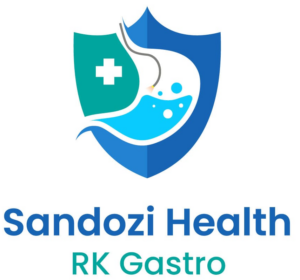Alcoholic Liver Disease (ALD) is a serious condition impacting many lives worldwide. This disease is caused by excessive alcohol consumption, leading to liver damage. As it progresses, it can trigger severe health issues, affecting one’s quality of life. The purpose of this blog is to empower individuals with knowledge about ALD. By understanding the symptoms, prevention, and treatment options, individuals can take better care of their liver health, potentially avoiding serious complications later on.
Recognizing Symptoms of Alcohol-Related Liver Disease
Alcohol-Related Liver Disease (ARLD) manifests through various symptoms, both early and advanced. Early signs might include fatigue, nausea, and abdominal pain. If the disease progresses, symptoms can become more severe, involving jaundice (yellowing of the skin and eyes), intense abdominal discomfort, and swelling.
Being aware of these symptoms is crucial. It is important for individuals to pay attention to their bodies. If any of these signs appear, seeking medical advice promptly is vital. Early intervention can significantly improve outcomes for those affected. Staying informed and vigilant about potential liver issues is key, emphasizing the importance of regular health check-ups and proactive health monitoring.
Alcohol and Its Impact on the Liver: What You Need to Know
Drinking alcohol puts a strain on the liver, an essential organ that filters toxins from the body. Over time, excessive drinking can damage liver cells. The liver tries to repair itself, but too much alcohol can hinder its ability to heal.
Moderation is crucial for liver health. A healthy liver can manage small amounts of alcohol, but continual excess can lead to damage. Some people are more prone to liver damage than others due to genetic factors, so it's important to understand your own risk. Limiting alcohol intake and taking regular breaks from drinking can aid in maintaining liver health. Prioritizing a balanced lifestyle can also aid in mitigating those risks. Compassion for oneself and acknowledgment of personal limits can make a significant difference.
Exploring the Stages of Alcoholic Liver Disease
Alcoholic Liver Disease progresses through several stages, each becoming more serious over time. The first stage is Alcoholic Fatty Liver Disease. This stage involves a buildup of fat in the liver cells. Often, there are no symptoms, but it can be reversed with lifestyle changes. If left unaddressed, it could move to Alcoholic Hepatitis, causing liver inflammation. Symptoms at this stage may include abdominal pain and jaundice.
With timely medical intervention and by stopping alcohol consumption, healing is possible. However, if ignored, the disease can advance to Cirrhosis, an advanced and severe stage of ALD. Cirrhosis involves scarring and irreversible liver damage. This can lead to life-threatening complications such as liver failure.
Alcoholic Fatty Liver Disease: Early Signs and Intervention
During the Alcoholic Fatty Liver Disease stage, fat accumulates in liver cells, but it is the most manageable stage. Recognizing changes early on enables one to make lifestyle adjustments to reverse damage. Limiting alcohol and adopting a healthy diet and exercise regimen can significantly help.
Alcoholic Hepatitis: Symptoms and Treatment Options
Alcoholic Hepatitis shows more serious symptoms like jaundice and pain. It may even progress to severe health issues if not addressed. Medical interventions may involve medications, but quitting alcohol is essential. Abstinence plays a critical role in healing. Timely interaction with healthcare professionals can guide one effectively.
Cirrhosis: An Advanced and Severe Stage of ALD
Cirrhosis represents the last stage of alcoholic liver disease. It involves liver scarring, which is irreversible, and even minor tasks become challenging. Without treatment, the condition raises the risk of liver cancer and failure.
Symptoms could include swelling in the legs and abdomen. Complications like liver failure are life-threatening, necessitating early and robust medical intervention. Engaging with healthcare providers ensures understanding and managing this stage, which is crucial to avoid further complexities.
Treating Alcohol-Related Liver Disease: Exploring Options
Treating Alcohol-Related Liver Disease involves various strategies. Medical treatments may include medication and nutritional therapy, designed to support liver recovery. Lifestyle changes are equally important.
Abstaining from alcohol is paramount. Drinking responsibly and considering lower-risk options for coping with stress aid in recovery. Collaboration with healthcare providers is beneficial. Doing so ensures tailored treatment plans. Leading a balanced lifestyle boosts recovery chances and liver health.
Complications of Alcohol-Related Liver Disease and How to Cope
Complications arising from alcoholic liver disease significantly impact life quality, necessitating a proactive approach. Few potential complications include liver failure, certain infections, and gastrointestinal bleeding.
Understanding these risks helps in managing them. Strategies for coping include regular medical consultations, adopting healthy habits, and being aware of early signs of complications. Staying informed empowers individuals to face potential challenges and improves their capacity to manage health responsibly. Making informed choices is essential for those affected.
Emphasizing Prevention: How to Reduce the Risk of ARLD
Preventing Alcohol-Related Liver Disease focuses on practical steps. Limiting alcohol consumption is core to prevention. Integrating more fruits and vegetables into the diet and maintaining regular physical activity strengthens liver health.
Families can encourage each other in making healthy lifestyle choices. Communities play a role in promoting awareness and creating safe spaces for discussing liver health without stigma. Support from family and community can motivate individuals to prioritize liver health consistently. Creating an environment that encourages mindfulness of personal well-being benefits all.
Take Charge of Your Liver Health Today!
Your liver health doesn't wait, so why should you? Now is the time to take charge and make informed choices for your well-being. Understanding and recognizing the signs of alcoholic liver disease means you're a step ahead.
Start today by adopting a healthier lifestyle and reducing alcohol intake. Seek regular medical check-ups and stay informed about liver health. Together, we can create a liver-healthy future, inspire others, and lead a fulfilled life. Empower yourself to prevent the possible impacts of alcoholic liver disease.



